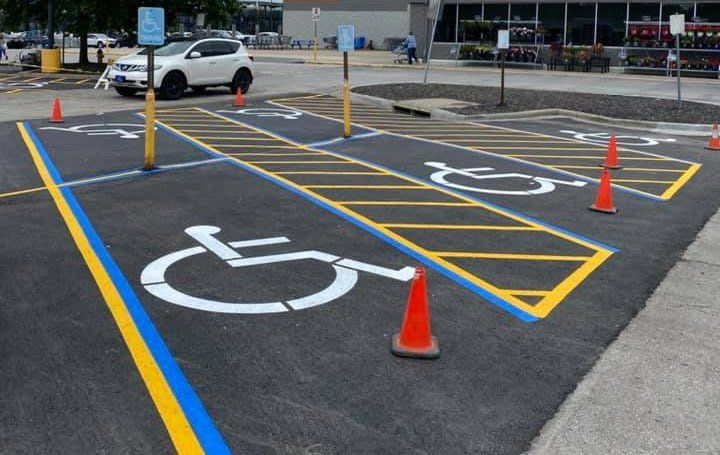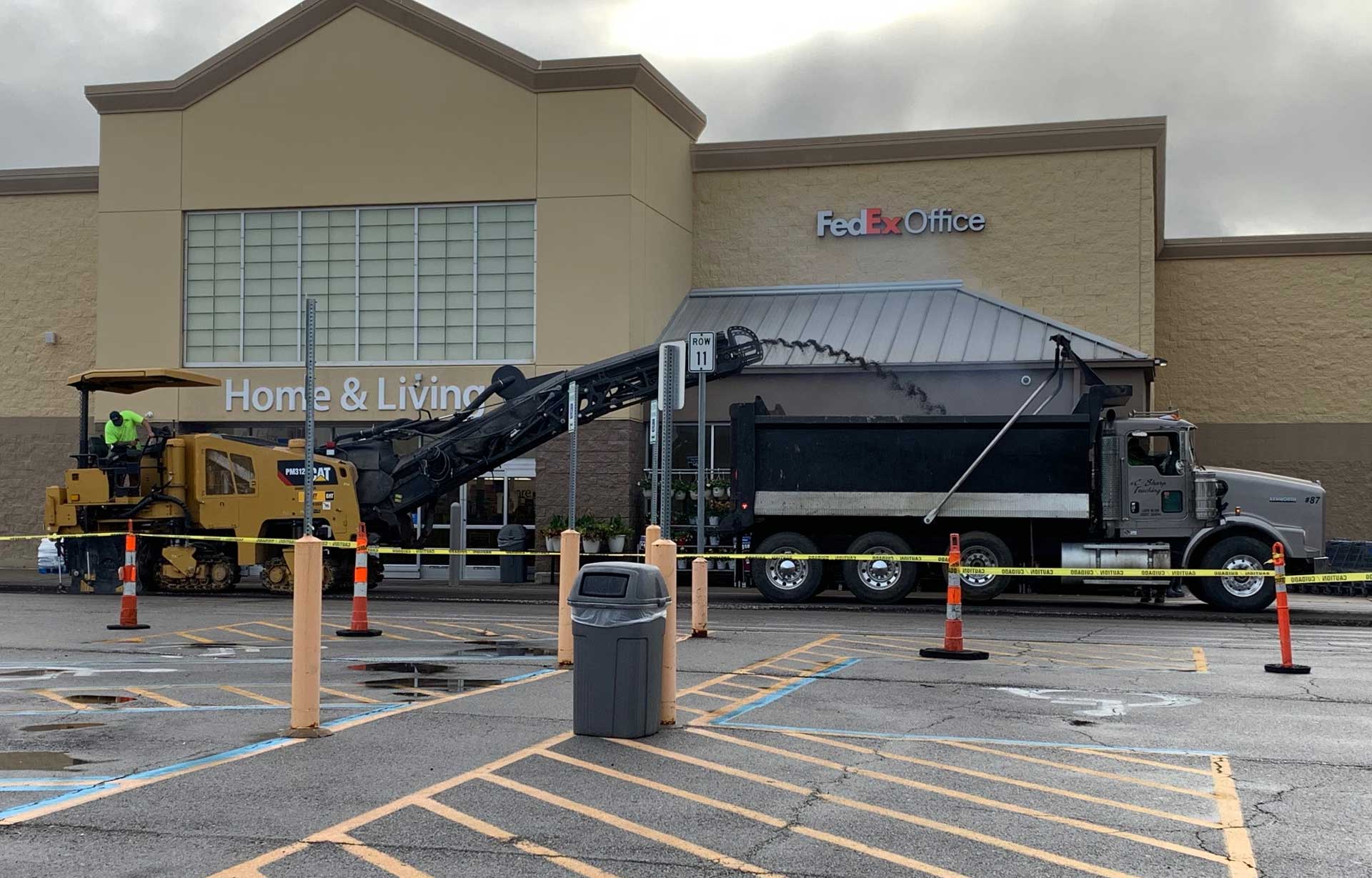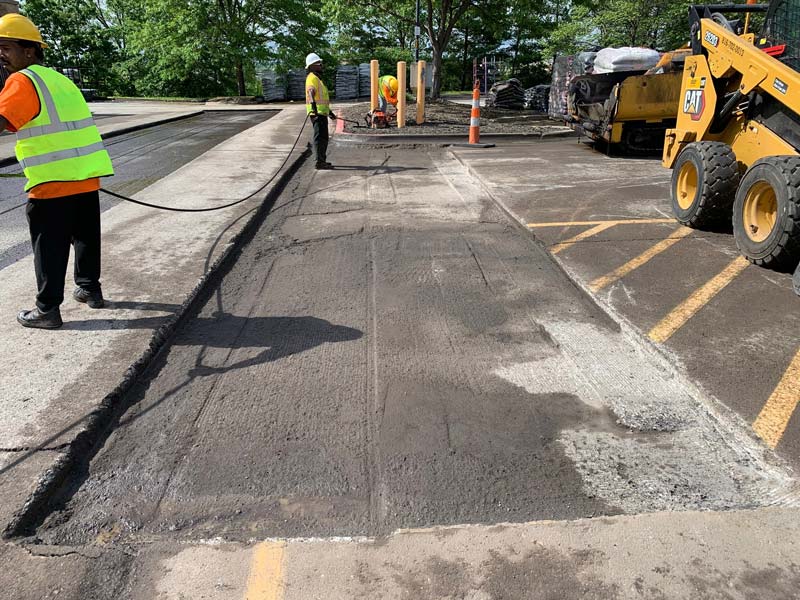Introduction
Asphalt driveways are a popular choice for homeowners and businesses alike due to their durability, cost-effectiveness, and aesthetic appeal. However, like any surface exposed to the elements and heavy traffic, they can deteriorate over time. Addressing issues promptly through asphalt driveway repair is crucial to prolong the life of your investment. In this comprehensive guide, we will explore essential tips for asphalt driveway repair and maintenance, ensuring your driveway remains in pristine condition for years to come.

Essential Tips for Asphalt Driveway Repair
Understanding the Importance of Asphalt Driveway Repair
Asphalt driveways endure constant wear and tear from vehicles, weather conditions, and environmental factors. Failing to maintain them can lead to cracks, potholes, and structural damage that could become expensive to fix. Regular repairs not only enhance the driveway's appearance but also extend its lifespan.
Recognizing Common Asphalt Driveway Problems
Before diving into repair methods, it's vital to identify common issues:
- Cracks: These can develop due to temperature fluctuations or heavy loads. Potholes: Often the result of water infiltration under the surface. Surface Raveling: This occurs when aggregate materials start loosening from the asphalt. Drainage Issues: Improper drainage can lead to water pooling and further damage.
Assessing Damage: DIY vs. Professional Help
While minor repairs like crack sealing can be managed by homeowners, significant damage might require professional intervention. Understanding when to call asphalt companies is key.
Pros of DIY:
- Cost savings Flexibility in scheduling Sense of accomplishment
Cons of DIY:
- Risk of improper repairs Lack of specialized tools Time-consuming
Hiring Asphalt Paving Contractors: What to Look For
When opting for professional asphalt paving services, it’s crucial to choose reputable contractors. Consider their experience, customer reviews, and portfolio of past projects. Always request written estimates and confirm they have appropriate licenses and insurance.
Evaluating Asphalt Driveway Repair Costs
Cost is a significant factor when planning repairs or resurfacing. The average asphalt driveway cost varies based on size, extent of damage, and location. Using an asphalt driveway cost calculator can help you budget effectively.
| Repair Type | Estimated Cost per Square Foot | |----------------------|--------------------------------| | Crack Sealing | $0.50 - $2 | | Patching | $2 - $4 | | Resurfacing | $3 - $5 | | Full Replacement | $5 - $10 |
Essential Tools for DIY Asphalt Driveway Repair
If you decide on a DIY approach for your driveway repair project, having the right tools is essential:
Asphalt patching material Squeegee or trowel Crack filler kit Sealant (for sealcoating) Pressure washer (for cleaning)Step-by-Step Guide: Repairing Cracks in Your Asphalt Driveway
Clean the Area: Remove debris using a pressure washer or broom. Apply Crack Filler: Use a pourable or caulk-style filler depending on crack size. Smooth Out: Ensure the filler is level with the surrounding asphalt. Sealcoat (Optional): After curing, consider applying sealant for added protection.The Process of Patching Potholes Effectively
Prepare the Pothole: Remove loose debris and clean surrounding areas. Fill with Asphalt Patch Material: Overfill slightly as it will settle. Compact Well: Use a tamper or plate compactor for stability. Seal if Necessary: After curing time has passed.Asphalt Resurfacing vs. Repaving: Which is Best?
Deciding between resurfacing or repaving depends on your driveway’s condition:
- Resurfacing involves applying a new layer over existing asphalt; ideal for minor damage. Repaving entails removing old asphalt entirely; necessary for severe deterioration.
Best Practices in Asphalt Driveway Maintenance
Regular maintenance can prevent costly repairs down the line:
Perform routine inspections every six months. Clean the surface regularly; remove leaves and debris. Sealcoat every 1-3 years depending on traffic volume. Address cracks immediately before they expand.The Role of Sealcoating in Driveway Longevity
Sealcoating acts as a protective barrier against UV rays, oil spills, and moisture infiltration:
Benefits Include:
- Enhances curb appeal Prevents oxidation Reduces cracking
How Often Should You Sealcoat?
For high-traffic areas or extreme weather conditions, sealcoating should be done every 1–2 years; otherwise every 3–5 years may suffice.
Choosing Between Coal Tar vs. Asphalt Emulsion Sealers
Each type has its advantages:

- Coal Tar: More effective against oil spills but has a stronger odor during application. Asphalt Emulsion: Easier application with less odor but may require more frequent reapplication.
How Weather Affects Your Asphalt Driveway Maintenance Schedule
Weather plays a crucial role in determining when you should perform maintenance tasks like sealcoating or resurfacing:
- Ideal temperatures range between 50°F - 90°F for sealcoating applications.
Understanding Drainage Solutions for Your Driveway
Proper drainage prevents water accumulation which can lead to potholes and cracks:
Solutions Include:
Installing French drains along edges Grading your property away from the driveway Creating swales or bermsAsphalt Edging Options: Enhancing Aesthetics & Functionality
Edges prevent grass from growing onto your driveway sealcoating while enhancing aesthetics:
Popular Choices Include:
Concrete Curbs Steel Edging Landscaped BordersFAQs About Asphalt Driveway Repair
Q1: How long does an asphalt driveway last?
A: With proper maintenance, an asphalt driveway can last anywhere from 15 to 30 years.
Q2: What are some common causes of cracks?
A: Temperature changes, heavy loads from vehicles, poor drainage systems are primary causes.
Q3: When should I consider replacing my driveway?
A: If there are extensive cracks/potholes covering more than 25% of the surface area.
Q4: Is sealcoating necessary?
A: While not mandatory, sealcoating greatly extends pavement life by protecting against damage.
Q5: Can I do my own sealcoating?
A: Yes! With proper preparation and materials you can undertake this task safely.
Q6: What’s included in professional paving services?

Conclusion
Maintaining an asphalt driveway requires diligence but pays off significantly through longevity and aesthetic value enhancement! From understanding common issues to knowing when it’s best to hire professionals versus tackling projects yourself—this guide provides essential tips that will aid both novice homeowners and seasoned property managers alike in effectively managing their investments in pavement repairs! Regular assessments combined with timely actions ensure that driveways remain durable throughout all seasons while minimizing potential costs associated with neglect over time! By following these guidelines diligently—you’ll achieve an appealing pavement that stands up against nature's trials—keeping your property looking sharp year after year!